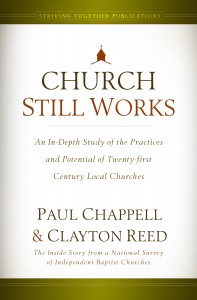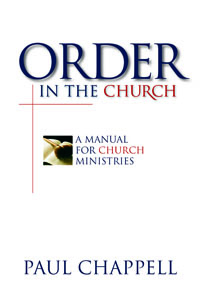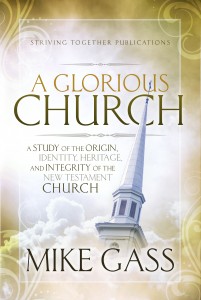 Over the course of a week I am often asked to speak to pastors regarding local church work. Many times it is to younger pastors who are in the process of forming a biblical philosophy of ministry. I always attempt to lead the conversation toward biblical principles, while allowing a young pastor to ask questions and take time to develop his philosophy through his own experience and Bible study.
Over the course of a week I am often asked to speak to pastors regarding local church work. Many times it is to younger pastors who are in the process of forming a biblical philosophy of ministry. I always attempt to lead the conversation toward biblical principles, while allowing a young pastor to ask questions and take time to develop his philosophy through his own experience and Bible study.
With the proliferation of information on the internet, much confusion abounds in the hearts of some young pastors around three basic areas: the polity of the local church (what a church is and how it functions), the passion of the local church (what a church does and why it matters), and the purity of the local church (what a church believes and practices about holiness and separation.)
There are many opinions and varying philosophies on these matters, so we should always exercise great discernment and biblical commitment. Local church philosophy should not be crafted by personal whim, reactionary thinking, secular business principles, or carnal ministry models. It should be crafted by biblical principle. In this post and the next two, I would like to examine each of these areas of ministry philosophy.
First, the Polity of the local church
Some young ministers are forgetting basic truths about the church itself. For example, Acts 20:28 teaches us that the local church has been purchased by the blood of Jesus Christ. The church belongs to Christ; therefore, it is not ours to reinvent or experiment with. Nor should we give the local New Testament church an “extreme makeover.” God’s blueprint has already been established. Simple faith will cause us to reject the models that do not follow a biblical pattern (no matter how successful or attractive they appear) and to embrace the authentic biblical model afresh (regardless of the stigma that may come with it.)
Another example: many today are forgetting that local churches start local churches. It is not up to an individual, in a moment of inspiration, to decide that he will begin a local church. The starting of a local church is something that begins in the heart of another local church, as seen in Acts 13. Here the Holy Spirit led the church at Antioch to send out Paul and Barnabas to establish other churches.
Having a biblical local church polity is vital. It determines how a church will function, govern itself, and organize itself. If a young pastor does not have a strong doctrinal and practical understanding of biblical polity, the planting of a church will be flawed from the start. It won’t be long before the “wheels” begin to fall off.
Pastor, many voices are competing for your attention. Many models of polity abound—most are unbiblical but very attractive. Who or what is helping your form your polity? Let it be God’s voice—the principles of His Word. Truly, He will bless that which adheres to the biblical model of local church ministry.
Don’t miss part two of this article where we will examine the passion of local church ministry.






